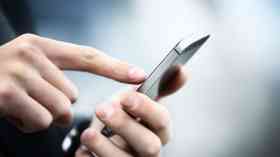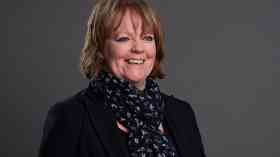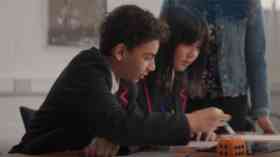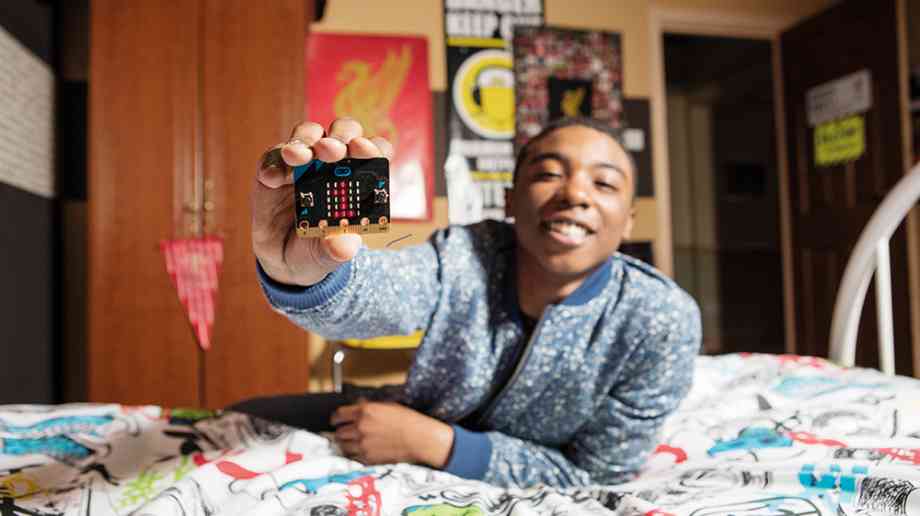
Inspiring the next generation of inventors
Following the official launch of the Micro:bit Educational Foundation, Education Business caught up with CEO Zach Shelby to find out more about how it plans to build on the BBC’s work to break down barriers to technology and enable young people to improve their digital skills.
The micro:bit was developed as an affordable way to encourage schools and pupils to engage with coding and inspire the next generation of inventors.
Initially made for Year 7s (aged 11 to 12), the micro:bit is a small computer designed to be used as an educational and creative tool to inspire a new generation of young people, giving them the knowledge and skills to move from being consumers of digital information, to being designers and creators of new tools to enhance learning, to solve problems or just to have fun.
As a stand alone device it can be made to flash its LEDs in sequence and take readings from several built-in sensors. However, it can also be connected to other hardware to fulfil a variety of projects and be used across the curriculum.
The initial role out saw pupils use the micro:bit in a wide range of projects. Pupils at Rishworth School in West Yorkshire attached a micro:bit to a helium balloon, launching it more than 32km into the air. One of the pupils wrote a program that used a heat sensor to log changes in temperature as it ascended into the stratosphere.
Pupils at London’s Highgate School took part in a one day coding challenge this year and used the micro:bit to help people with autism recognise other people’s emotional states, as people with the condition can often struggle to read expressions.
The team coded the micro:bit so that a user could scroll through a series of graphics, shown via the LEDs, of faces presenting different moods. When they found a match they could press another button to make the LEDs state what the image represented – for example ‘happy’, ‘sad’ or ‘angry’.
Over the last 12 months one million micro:bits have been distributed to school children across the UK, which have been supported by the launch of the micro:bit website and hundreds of learning resources for teachers and pupils.
Initial evaluation shows that users have visited the website more than 13 million times, used the code simulator nearly ten million times and compiled code onto their devices close to two million times.
Additionally, a BBC Learning and Discovery Research report found that 39 per cent of girls who used the BBC micro:bit said they will now choose ICT/computer science as a subject option in the future, compared to just 23 per cent before trying out the micro:bit. 90 per cent of children also said the BBC micro:bit taught them that anyone can code and 88 per cent said it showed them coding is not as difficult as they thought it would be.
The Foundation will now take over from the original BBC micro:bit partnership in a phased transition, ensuring long-term support and expansion of the educational program. It will continue the roll out across UK schools, promoting the use of the micro:bit, as well as offering sponsorship to schools who may struggle to afford the technology.
The micro:bit is also currently being used in Iceland and the Netherlands and the Foundation will look to further expand the micro:bit across Europe and beyond, which will include extensive multilingual project and teaching resources available to encourage creativity and invention with technology at school, in clubs and at home.
The European roll out is currently scheduled for Q4 2016, with further expansion to the US and Asia planned for 2017.
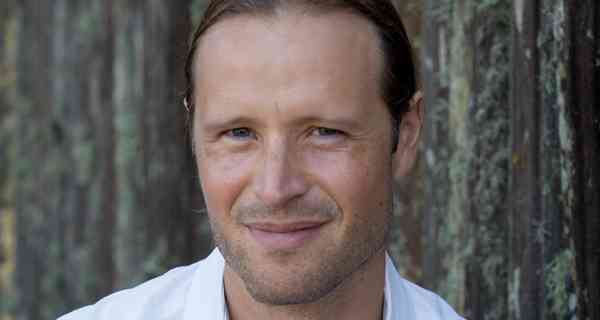 Education Business spoke with the Foundation’s new CEO Zach Shelby to find out more about how he plans to increase uptake and support digital skills across UK schools.
Education Business spoke with the Foundation’s new CEO Zach Shelby to find out more about how he plans to increase uptake and support digital skills across UK schools.
Education Business (EB): What are the immediate plans to increase uptake in UK schools, and do you have short, mid and long term targets in addition to the headline to ‘reach 100 million people’ worldwide?
Zach Shelby (ZS): Indeed, we do plan on reaching more people step-by-step.
In the UK, our focus for the 2016/2017 school year is helping educators in schools and other programmes make the most effective use of micro:bits.
A sponsorship programme to make BBC micro:bit classroom kits available upon request will be opened during the 2016/2017 school year, in particular aimed at disadvantaged children.
The UK project shows a great example of providing equal chance, as it provided an initial deployment across the whole school system. The Foundation will be working with partners in other countries to employ similar strategies to deploy BBC micro:bit in a way that gives access to all young people. Already in Iceland, the Ministry of Education has taken this approach with their ongoing deployment.
The Foundation will develop additional schemes of work and lesson plans for UK teachers during the 2016/2017 school year, as well as a teacher and school specific web portal will be released in Q4/2016.
Additional kits and training will be made available to STEM volunteers through partners in order to provide support to teachers and a range of competitions will be used to help motivate teachers and students.
We expect the biggest growth of micro:bit to be outside the UK over the next two years. During the rest of 2016 we are focused on rolling out micro:bit across Europe, where we already have strong activities in Iceland, Norway and the Netherlands. In 2017 we will be expanding the program to N. America and China, starting with small pilots now, larger pilots and then full-scale deployments. From there we will enable further countries in S. America, Africa and Asia.
Like in the UK, this is not just about devices, we are also working with local partners and volunteers to enable language support (we will have Norwegian, Dutch and Chinese by December) along with local teaching material and communities.
EB: Are there any areas of the country or specific types of school that have been flagged for poor uptake, and do you have any plans to specifically target these areas?
ZS: We have not flagged poor uptake in particular regions, however we are looking at what kinds of demographics and use are showing the most benefit from the use of micro:bit so that we can target it properly going forward for the best educational outcome.
EB: You said at the launch that there would be opportunities to use funds to sponsor micro:bits for certain schools, could you elaborate on how this will work and what the selection criteria will be?
ZS: Criteria for our UK sponsorship programme are still being studied, where we are working with other educational organisations to best define and understand exactly this. Many schools can afford to purchase micro:bits as they are not particularly expensive, or already have great technology programmes, we would look to help schools that don’t fall in those categories.
EB: At the moment micro:bits have been predominantly focused on secondary school pupils. You mentioned at the launch that you believe there is scope to widen access in primary schools, as the younger pupils get acquainted with coding the better. Could you expand on this and touch upon any potential plans in the future to support wider access at primary level?
ZS: We are seeing this already at the grass‑roots level, with teachers in primary school applying micro:bit in their lessons both in the UK and abroad. The same goes for older students, where we are seeing great usage with teenagers and even university students. In particular coding clubs have a wide range of age groups they work with. First, we are making sure our user experience is great also for younger children. Second, we are working on a new teacher portal, where we will be making schedules or work and lesson plans available targeted specifically at different age groups and subjects.
EB: Another point we briefly discussed was the potential for micro:bits to be utilised across a number of subject areas, not just IT and computing. Could you give examples of which subjects you think this would be best suited to and why involving coding across a number of different subject areas will help to build the skills pupils need for the future?
ZS: We’ve learned a lot from teachers talking about all their ideas for where to apply micro:bit. In particular some of the subject areas we hear a lot about include math, physics (e.g. the Bloodhound rocket car competition), health (The Big Food Survey), biology and geography (using micro:bit to observe the world) and of course using sensors and measurement in science overall.
EB: If this is to be successful, teachers may need training on how to successfully utilise the micro:bit in their lessons. Are there any plans to offer teacher training and reach out to teachers who may be sceptical of its usefulness?
ZS: Absolutely, as part of our UK education programme we are working with networks of STEM ambassadors, CAS master teachers, Code Club volunteers and others to provide them with micro:bit and training tools so that they can go out and help other teachers make the most of it. We’re always open to new ideas here as well.
Further information
www.microbit.org
Latest News
09/01/2026 - 10:13
The measure, added to the Children’s Wellbeing and Schools Bill, delivers on the commitment made in the government’s manifesto to bring multi academy trusts into the inspection system.
08/01/2026 - 10:30
The government is launching a new app allowing students to view their GCSE results on their phones for the first time from this summer.
08/01/2026 - 09:45
Education Business LIVE has announced that Professor Samantha Twiselton OBE of Sheffield Hallam University will speak at the event in March 2026, delivering two thought-provoking sessions focused on initial teacher training and SEND provision.
07/01/2026 - 10:10
Solve for Tomorrow is a free, curriculum-linked programme which is mapped to Gatsby Benchmarks 4, 5, and 6, helping teachers embed careers education without adding to workload.
06/01/2026 - 10:24
London's universal free school meals programme has not led to improvements in pupil attainment during its first year, but has eased financial pressure and reduced stress for families.


